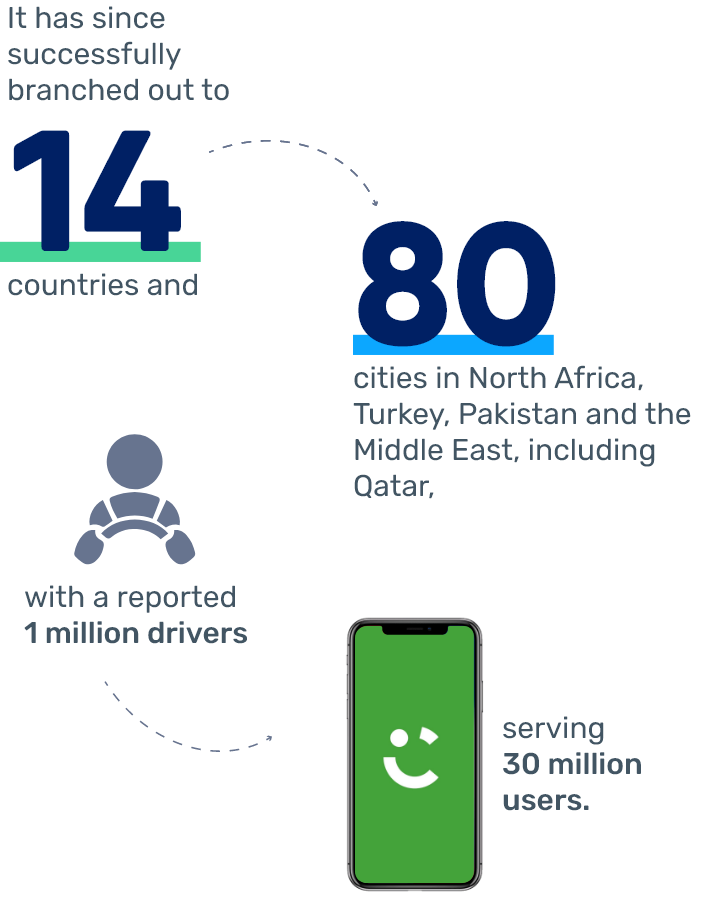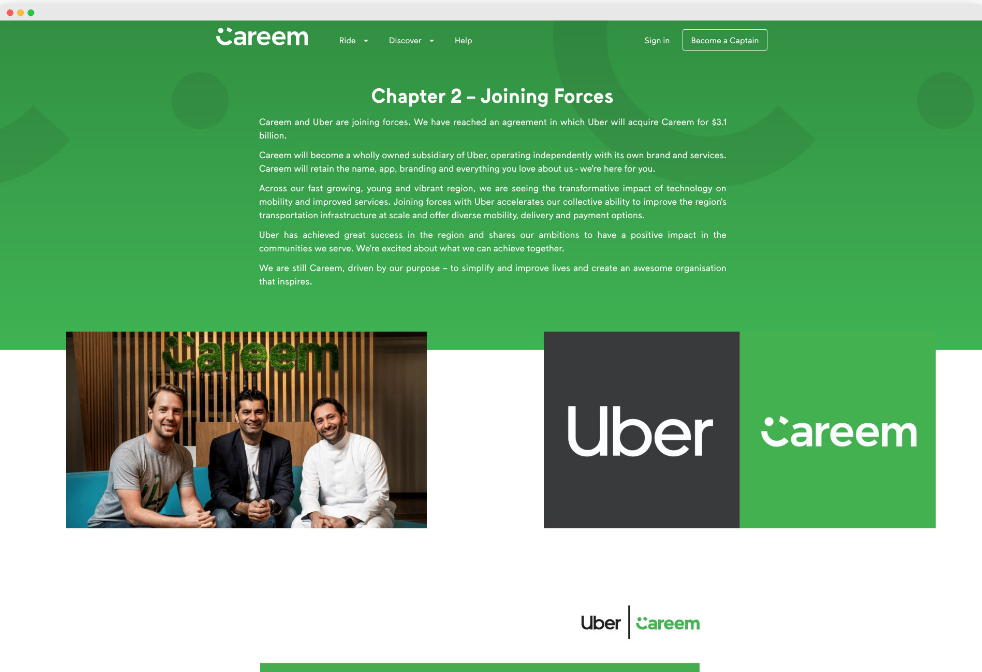At its core, Careem has a clear purpose:
to simplify and improve the lives of
people and build a lasting organisation
that inspires.
And it was recently acquired
by Uber at a price of $3.1 billion,
taking Careem from small start-
up, to one of the Middle East’s
unicorns.
Careem, a private car booking service, is a regionally born and grown brand that was started by two management consultants in 2012.

In Qatar, the company is among the alumni of the Digital Incubation Center (DIC), which was formed by the Ministry of Communications and Information Technology to boost innovation in the ICT sector, particularly among young people at the early stages of starting or growing a tech-related business.
With the DIC’s guidance, Careem was able to research the local market, receive technical support and local mentors, access legal advice and training, and adapt its model specifically to Qatar’s consumer needs.
Careem Qatar customers can order a car online using a mobile app, track their rides in real-time, pay with credit cards and access receipts online. The company also serves several large corporations, whose staff have all been signed up for the service, with invoices settled on a monthly basis.
As a brand created in the region, for the region, Careem’s advantage is it’s local focus. The company invests significantly in research and development (R&D) to better tailor its services to local customer needs. A recent report confirmed that Careem will invest $100 million in R&D to accelerate innovation in the region’s transportation-related technology infrastructure.
Innovation and technology play a vital role in how Careem serves its stakeholders, especially its passengers and drivers, or Captains.
For example, Careem Qatar’s Captains have been invited to participate in the pilot phase of the Captain Loyalty Program, which rewards Captains for delivering outstanding performance.
Each Captain receives a loyalty card which enables them to collect points based on bi-weekly performance. The points can be redeemed at a list of participating merchants, for rewards such as flight tickets, dining and grocery vouchers, mobile phone top-ups and more.
Similarly, Careem Rewards was launched to reward passengers with Shukran points earned on all rides paid by cash, card or invoice. Qatar’s passengers are able to earn 30 Shukran points for every QR100 spent with Careem, enabling them access rewards through merchant partners and credit on future rides. Additionally Careem has partnered with charities so that passengers may also use their points to make donations to local causes.
Loyalty programmes such as these are highly influential in an online shopper’s purchase decision, with 49% of Qatar’s online shoppers confirming that loyalty programmes are important to them in the MCIT 2019 Impact Survey Report.
Careem has made its priorities clear since it start-up – develop and use innovative technology to ensure a better customer experience; focus on employee growth and development; adapt to local and cultural considerations; reward loyalty in a meaningful way; and encourage charitable donations.
It has borne substantial fruit. In the last 6 months, Careem has seen more than 1.73 million visitors its website, and the company reports that it has grown by 25% to 30% per month in the last three years.




